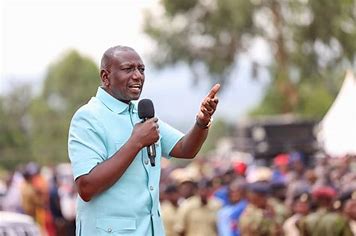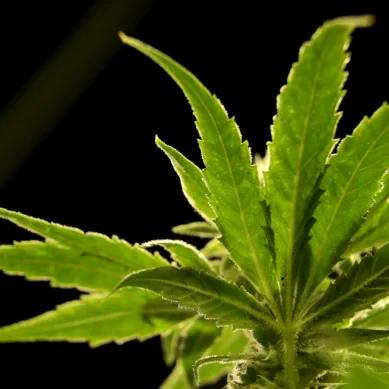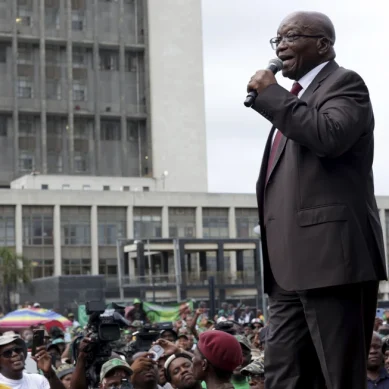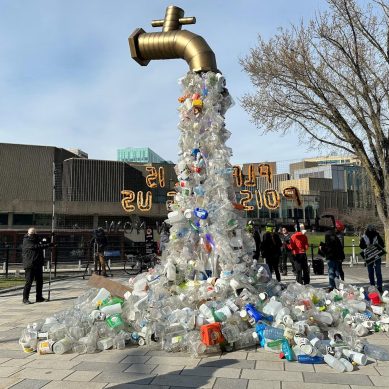
Whether or not Kenya will go to the 2027 with provisions of presidential term limits still intact in the constitution is increasingly becoming a tossup matter after it emerged that Laikipia Senator John Kinyua has been retained to work on a Bill to make presidential tenures open-ended.
While Kinyua dispelled fears of imminent constitutional amendments during an interview with Tell, some Members of Parliament and parliamentary staff who attended the Devolution Conference in Eldoret town – President William Ruto’s backyard – confirmed having seen a draft. The raw document generated a lot of heat during the three-day event as lawmakers sought details of the architects of the push a return to the executive power structure before the 1991 amendments, which eschewed run-on presidential tenures.
“There was tension in the tent reserved for MPs. Senator Kinyua struggled to disassociate himself with the constitutional amendments,” according to a senior employee of parliament who spoke to Tell. On his part Senator Kinyua denied working on a bill that would remove presidential term limits.
On the basis of the architecture of the constitution, lawyers and politicians, say removal of presidential term limits is a tough call. However, they concede that Kenya has a history of weakening its institutions piecemeal, citing failure to fully implement the same constitutional targeted for amendment.
The proposal to remove terms limits for governors and president have stoked fears that Kenya is hurtling towards a dictatorship following a series of executive decisions and decrees that have stirred the other two arms of government – the judiciary and legislature – that constitutionally enjoy some autonomy. Already, five judges of the Court of Appeal and High Court who recently ruled against the executive have been transferred out of Nairobi to some far-flung work-stations as a retribution.
Against this backdrop, fears of a dictatorship-in-the-making were accentuated and given shape during President Ruto’s tour of western Kenya when he warned sugar cartels accused of undermining further the wobbly sugar industry they would be exiled, jailed or “sent to heaven”.
Constitutional lawyer Hassan Kulundu says the president’s chilling message reeks of despotism.
“The president’s declaration that he will deal with corruption cartels by either ‘sending them to jail’ ‘sending them into exile’ or ‘sending them to heaven’ is indicative of a leader who is prepared to abandon the rule of law and use extra-judicial means to deal with the vice. This is the kind of language we have heard from Russian strongman Vladmir Puttin where all the people he disagrees with are either in jail, in exile or six feet deep in the grave. In essence, the president no longer respects the right to presumption of innocence and this is not healthy for Kenya’s democracy. I would urge the president to be more measured in his pronouncements lest he sends the wrong signal to those who wield the state’s assets of coercion,” says Kulundu.
The lawyer says the president is “slowly but surely” preparing the country for unbridled presidential authority, with which he can make far-reaching changes to executive powers that include removal of term of office.
With concerns piling over possible constitutional overhaul, the civil society and professional associations have also raised the red flag over what they are referring to as a gradual slide into tyranny. Responding to President Ruto’s warnings, the Law Society of Kenya (LSK), Amnesty International and Haki Afrika warned that Kenya is on the road to self-destruction constitutionally and legally if the executive is not checked.
On behalf of the three groups, LSK President Eric Theuri said, “The demand that we want to make on the president is to not only to withdraw and apologise for those very unfortunate remarks but also to allow the due process of law to take its cause to its logical conclusion. In a court of law, we have laws that ensure equality of parties that appear before it and each party has an opportunity to present the case they have before an impartial arbiter who is the court, to interfere in those processes before the court has made its determination is to undermine the rule of law and authority goes against the constitution.”
Kulundu likens the evolving political and constitutional scenario in Kenya to the period shortly after the Russian revolution between 1917 and 1924. During the period political idealist and lawyer Vladimir Lennin rode to power promising to retool governance by disbanding the nobility (dynasty in Kenyan political lingo) and co-opting the serfs (read: hustlers).
The dynasty-versus-hustler discourse in Kenya is reminiscent of the nobility-versus-serfs in the tsarist Russia. Once the nobility or landowners were ousted from positions of privilege and leaders of the serfs or slaves captured the reins of the state divisions occurred, pitting the Mensheviks against the Bolsheviks.
Notably, since assumptions of power Ruto’s state of the nation and public speeches are just a rendition of his 2022 presidential campaign that was characterised by dogmatism, now imported into office and evokes memories of post-1917 Russian revolution that ushered Soviet Russia. However, the ensuing struggle for the control of the state and means of production soon gave birth to belligerents in the form of Mensheviks – who were dominated by royals and nobility – and the Bolsheviks codified as serfs or hustlers.
Lennin, a lawyer, revolutionary, politician and political scientist captured the imagination of the masses, promising to disentangle serfs or ‘hustlers’ from the clutches of the royals and nobility that had dominated Soviet Russia between 1917 and 1924 before later becoming Soviet Union in 1922. Under him, the Soviet Union became a one-party socialist state governed by the Communist Party. He espoused the Marxist ideology and his brand of the ideology became known as Leninism.
Therein lies the parallelism of Ruto’s United Democratic Alliance (UDA) silently but determinedly gnawing at the base of partner parties – Amani National Congress, Ford Kenya, Maendeleo Chap Chap, etc – that coalesce under Kenya Kwanza Alliance, political and human rights activists point out. Similar comparison is made of Mao Zedong, a Chinese politician, political theorist, military strategist, poet and communist revolutionary, who founded the People’s Republic of China (PRC). Mao Zedong led Chinese Communist Party that has been in power since 1949 after nibbling away at the constitution that gave sovereignty to the ordinary folks.
As the civil society kicked off robust resistance to what they see as gradual usurpation of powers the constitution bestows on regional governments, in parliament some legislators warned against bungling of the primary law. They warn that such a move was likely to set the country on course to civil disturbance similar to the current situation in West Africa.
Responding to questions on the proposed repeal of presidential term limits, a member of the Committee of Experts that wrote the constitution Otiende Amolo said the plan – if it is being contemplated – is ill-fated.
“I’m not aware of such a bill. But, per Article 255(1)(f), such a bill would require a referendum,” Amolo said as he explained the difficulties the executive faces in attempt to recapture the dispersed powers of the executive and annul presidential term limits.
Lawyer Kulundu explains: “Presidential term limits are the safeguard against dynastic rule; removing term limits encourages entrenchment of dynasties and dynasties have the tendency to morph into dictatorships. Looking at the legislative history and legislative intendment of the 2010 Constitution, Kenyans should therefore treat the provision on term limits as an “eternity clause” by not entertaining any idea of removing term limits!”
The ‘eternity clause’ faces threats from a new group that calls itself Promoters of Popular Initiative led by constitutional lawyer Patrick Loch Otieno Lumumba. The groups is vouching for a “constitutional moment 13 years after promulgation. It has set its eyes on articles of the constitution on governance, leadership and integrity, representation, elections and the structure of devolution. The group’s membership has in the past enjoyed a rapport with the governing elite, hence suspicion that it is sponsored by the executive to give it a semblance of “popular initiative” as intended in the constitution.
Says Prof Lumumba, “We must have a constitutional moment. There is an opportunity to re-examine the constitution.”
The pressure group plans to collect over a million signatures of registered voters as required by Article 257 of the constitution. It remains to be seen how the group will finance the exercise, which requires a huge financial outlay, short of being supported by the ruling elite.
Talk of imminent revocation of sections of Article 255 (1)(f) of the Constitution that limits presidential tenures to two five-year terms surfaced on August 16 after US Ambassador to Kenya Meg Whitman lavished the East African nation with praise as the most “stable democracy in Africa”.
The remarks elicited searing criticism by opposition leader Raila Odinga, who unreservedly rebuked the American envoy for “meddling in Kenya’s internal affairs” and giving impetus to extra-constitutional push to review the mother law.
“Tell the rogue ambassador Kenya is not the United States. Kenya is not a colony of the United States. Keep your mouth shut while you are here. Otherwise, we will call for your recall back to your country,” Raila warned.
- A Tell report











